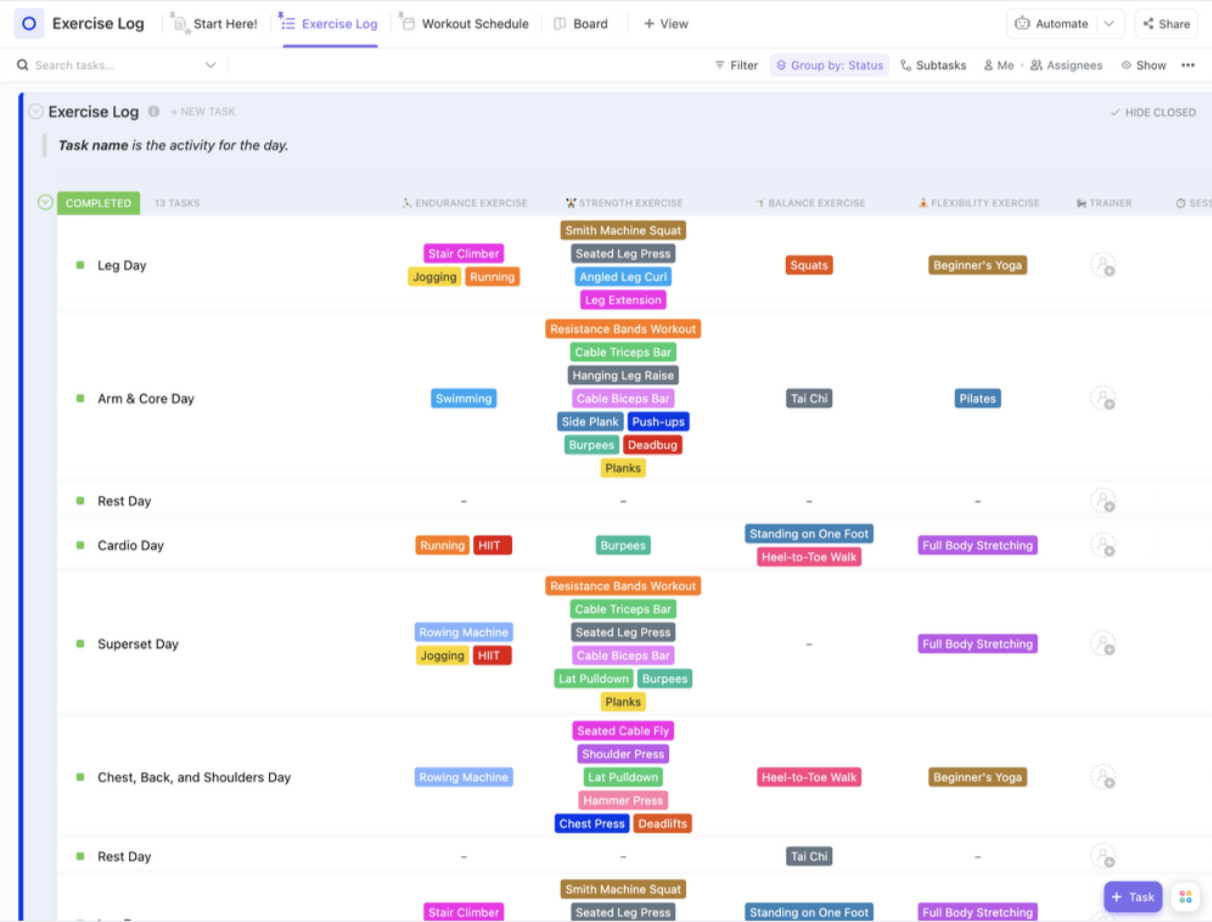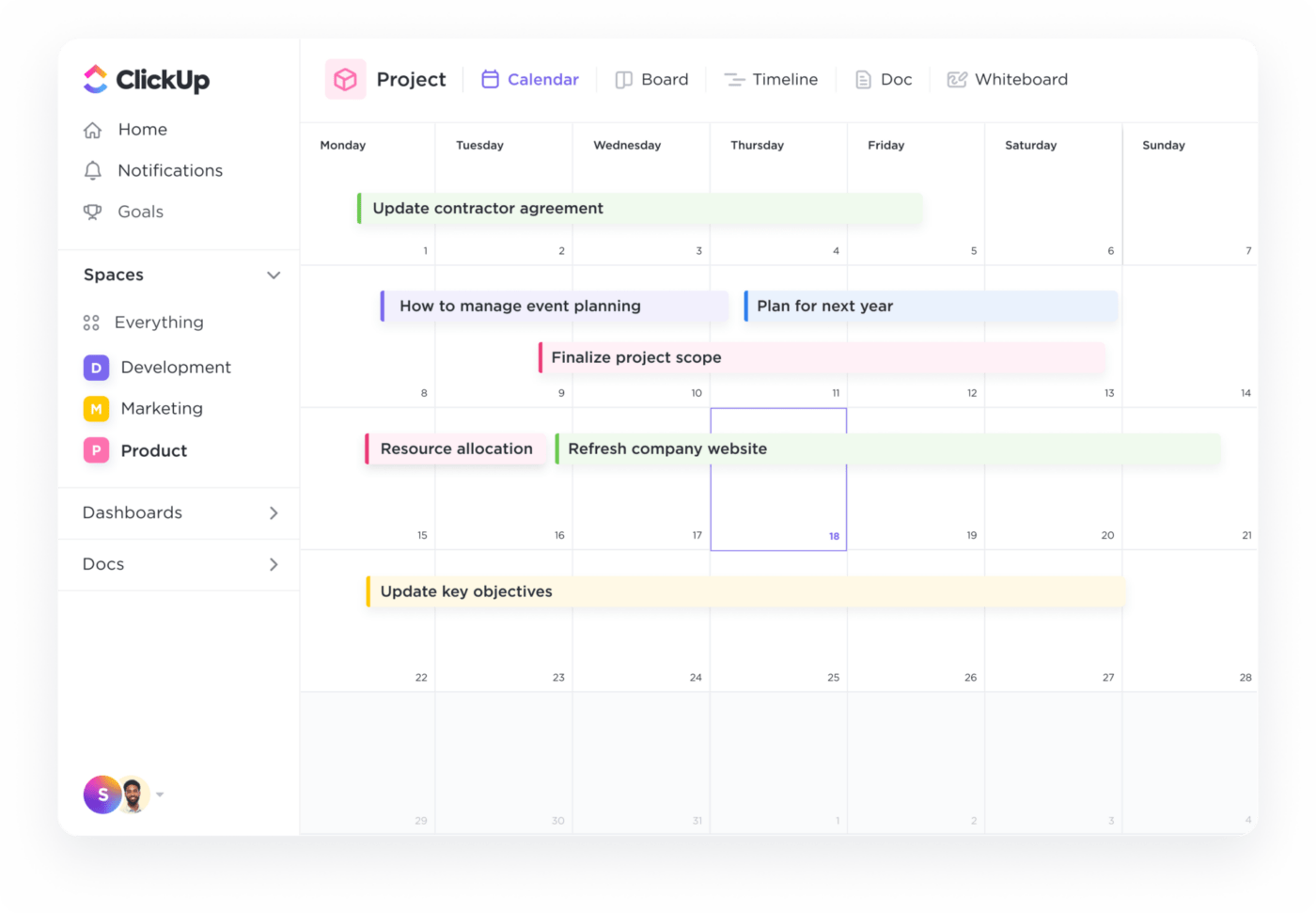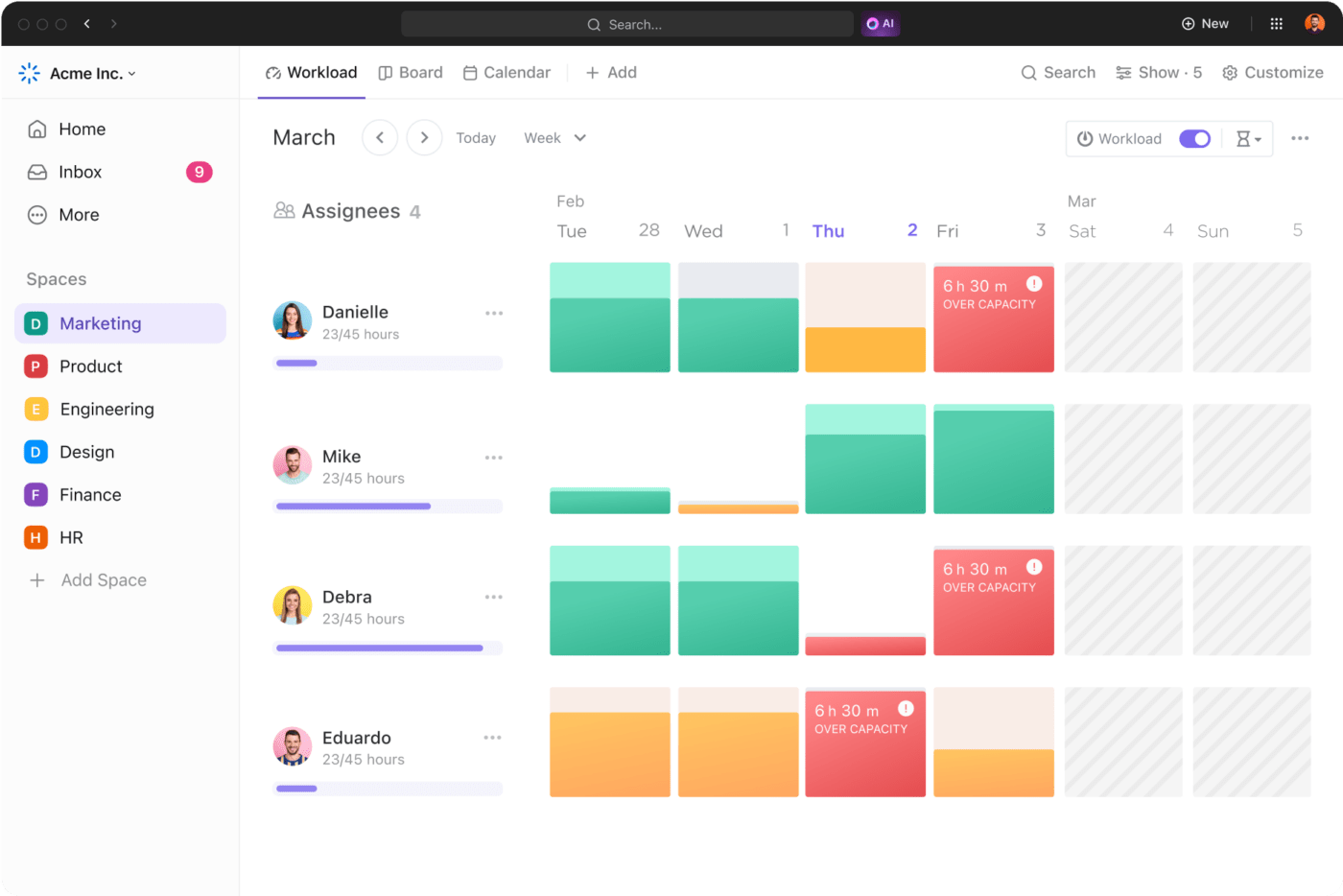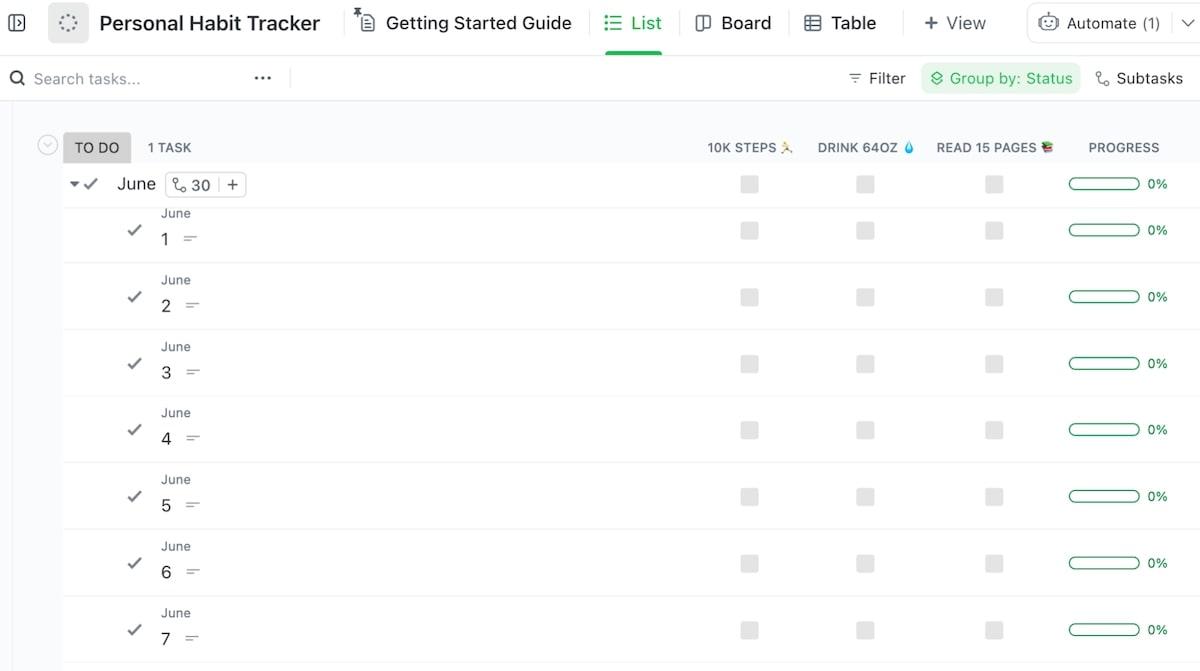20 Simple Daily Habits to Maximize Productivity in 2026

Sorry, there were no results found for “”
Sorry, there were no results found for “”
Sorry, there were no results found for “”
British author Samuel Smiles described habit as a transitory stage between an act (action) and an individual’s character, which imminently forms their destiny. Since your daily habits profoundly affect the outcomes, you can use them as an essential tool to achieve personal and professional goals!
So, whether you aim to lose weight, quit smoking, reduce stress or get that promotion, become more productive, or strike the perfect work-life balance, you can aspire to achieve it all through good daily habits.
Stick around as we walk you through how daily habits add more meaning to your life. We also list 20 simple but effective habits to make your life easier.

The idea of what forms daily habits was initially published in Charles Duhigg’s book, The Power of Habit. Charles propounded the habit loop, or the cue-trigger-reward loop, as the theory behind what forms (or breaks) habits. The almost cyclic process plays out as below:
Consider this example of the cue-trigger-reward loop: When you feel stressed (cue), you drink coffee (routine). The caffeinated rush helps alleviate stress, stay focused, and complete the task (reward). Before you know it, you’ll make coffee whenever you are stressed (daily habit).
We’ve already established that habits are a precursor to personal and professional success. Building the right set of daily habits attracts the following benefits:
In his bestselling book Atomic Habits, James Clear emphasizes how daily habits transform one’s life. Apart from acknowledging Duhigg’s habit loop model, Clear talks about the 1% rule, which encourages small, incremental, and consistent changes to one’s day-to-day life. Doing so will have a compounding effect and catalyze habit formation.
With this background, here are 20 small daily habits that make a big difference:
A structured morning routine sets the tone for your day. Everything you do in the morning shows how your day will pan out. Spend your morning rushing around and stressing about getting things done, and this feeling will persist throughout the day. Stay calm and organize your thoughts; you will spend a day of clarity.
Here are some ways to build a positive morning routine:
Customize this routine to match your goals and preferences. Also, start small and gradually build up to a more comprehensive morning routine to avoid feeling overwhelmed right from the start.
Once you’ve started the day, it is time to move your body. Daily exercise improves your physical and mental well-being. Even a few minutes of physical activity, such as taking the stairs or walking to nearby places, strengthens muscles, improves cardiovascular health, and helps maintain a healthy weight.
Besides avoiding diseases, exercising (especially outside in fresh air) improves mood, increases energy levels, and releases endorphins – the ‘feel good’ hormone.
You don’t have to be a gym rat to exercise regularly. You can:
Set aside a dedicated time for exercising. Treat it like an unmissable appointment.

A balanced, nutritious diet should form the foundation of all your meals—from a healthy breakfast to what you eat for dinner and everything in between. Eating the right foods supplies the body with essential nutrients, improves energy and vitality, helps manage weight, and prevents diseases. Your diet also impacts your mental health and cognitive functioning.
Here’s how you can make eating well a priority:
Practice mindful eating so that you appreciate every bite and treat your body like a temple that it is.
Daily goal-setting is an excellent way to break down larger, long-term goals into smaller, achievable chunks. Creating a clear, actionable day’s to-do list allows you to build a roadmap for success and focus your time and energy on high-impact tasks.
It also helps track progress, maintain motivation, and manage time. Further, it lends agility to your actions as you can recalibrate your goals based on changing priorities and circumstances.
Improve daily goal setting by:
Start your day by setting goals and end it by measuring how you did.

Defining goals is pointless if you don’t follow through with a robust plan and doable schedule. Following a work schedule lends structure and organization to your life. Effective schedule management optimizes your time, enhances productivity, and reduces stress.
You can maintain and stick to your schedule by:
While following a schedule, get comfortable saying no to things that may not align.
Prioritizing tasks helps you stick to your schedule, make smarter decisions, and achieve results. Most successful people follow the 80/20 rule (Pareto Principle) while prioritizing their tasks. According to this concept, 80% of your results come from 20% of your activities. Focusing on the critical tasks will help you get more done.
Going by this, prioritize work by:
So, use task prioritization to direct your time and energy into meaningful and impactful activities.

Time blocking involves dedicating certain periods or blocks of time to specific activities. For instance, set aside the first hour of your daily work routine to check and respond to emails. As a result, you will stay focused on the task at hand rather than try everything at once.
To practice time blocking, you can:
While practicing time blocking, maintain healthy personal boundaries to prevent procrastination.
How often have you started a task only to get sidetracked by a video or doomscrolling on social media? Pretty often!
Although attention is a precious resource, it is also limited and (somewhat) expendable. What’s worse is that some distractions can sneak under the guise of work! For example, you may have to put aside creating your report because a manager needs to discuss something. Or you stop in the middle of your code to respond to a work email.
Context switching hinders work, increases cognitive load, adds errors, and reduces efficiency. Here’s how you neutralize it:
Limiting context switching lets you enjoy laser-sharp focus and stick to your priorities.
Continuous learning is the path to constant improvement. A curious mind broadens perspectives and encourages personal and professional growth. Learning something new also stimulates the brain to promote the formation of new neural networks and heightens cognitive functioning.
To make learning and upskilling a daily habit, you can:
In short, stay curious.
Mindfulness requires us to stay present in the now. In doing so, we become increasingly aware of our surroundings, thoughts, and emotions while dispelling judgment or criticism. It does wonders for your mental health. Deliberately prioritizing self-care reduces stress, improves emotional regulation, and increases resilience.
Follow the below tips to make mindfulness a daily habit:
Join mindfulness groups or communities to stay consistent and share your experiences.
Cat naps or power naps are a great way to revitalize your mind and body. When done right, they can leave you feeling well-rested, counter fatigue, boost energy levels, improve mood, and sharpen cognitive function.
However, power napping is a science that you need to practice with caution. Master power naps with the following tips:
Some expert cat nappers also recommend a nappaccino—a cup of coffee before a power nap that will kick in just when you wake up!
While practising time blocking, set aside some time for social networking. Use this time to tap into your professional network, discover opportunities, exchange ideas, obtain career advice, and gain visibility within your industry.
On a personal front, use it to connect with your friends and family members and strengthen your interpersonal relations. Make networking a habit by:
Doing the above creates a solid support system for yourself and those around you.
Effective communication is a skill. The more you practice, the better it will manifest as a habit.
Clear, intentional, and value-focused communication helps teams and individuals grow in various ways. It builds understanding, improves collaboration, fosters trust, resolves conflict, and facilitates the exchange of ideas.
Making effective communication a daily habit is possible when you:
Finally, combine effective communication with active listening. This combination will have you jumping on fewer calls, exchanging fewer emails, and getting more done!
Do you often feel like a pushover or someone who struggles with maintaining a healthy work-life balance? Then, it’s time to establish healthy boundaries as a daily habit.
Building healthy boundaries involves defining limits to what you will and won’t do, expressing your needs, and prioritizing self-care above all. As a result, you will feel less stressed, enjoy cordial relationships, cultivate greater self-respect, and focus on what truly matters.
Here are some tips on setting healthy boundaries:
When we speak about boundaries, it also includes setting boundaries for technology! Find ways to limit your screen time, turn off notifications, and enjoy an occasional digital detox to take a break from technology.

Daily reflection generates self-awareness, improves decision-making, assesses progress, and recalibrates goal alignment.
Typically, individuals schedule daily reflection at the end of the day to review how it played out and what they could have done better. However, you can sprinkle quick sessions of just a few minutes throughout the day where you take a breather and take stock of where you stand. Such reflection is made easier by:
Regardless of when or how often you carry out self-reflection, try to make it a ritual by practising it consistently according to a fixed schedule.
Gratitude journaling helps you relax and appreciate the finer things in life. It is especially potent in fixating your mind and all the thoughts on the positives so you feel happier and more fulfilled.
You can cultivate gratitude journaling as a habit by:
Gratitude journaling makes you realize it may have been a bad day, but it’s not a bad career or life!
Sleep hygiene relates to a series of habits and practices one follows to develop a healthy sleep routine.
Getting a good night’s sleep ensures you’re alert and well-rested to take on the day’s tasks. It enhances performance and improves overall health, emotional well-being, and cognitive functioning.
Here are some ways to cultivate better sleep hygiene:
You can only seize the day if your night’s been worth it.
We’re so tied up checking in on our friends, family, peers, colleagues, etc., that we forget to check on ourselves. Skipping over this stage keeps you out of touch with your feelings. Such discordance can cause us to ignore the discreet signs of stress and distress, leading to an avalanche of emotions, sometimes to the point of a breakdown!
So, do yourself a favor and check in on yourself using simple habits like:
Being kinder and compassionate with yourself can work wonders!
Creative expression keeps things fresh in your personal and professional life. It is a channel for expressing yourself and developing a healthy self-image and a complementary skill to learning new things. At the same time, it promotes creative problem-solving, broadens new perspectives, and challenges comfort zones.
Few things you can do to express yourself more creatively:
Finally, remember to treat your creative project as the outcome of your passion, not as an extension of yourself.
No habits, no matter how effective or powerful, must be set in concrete indefinitely. Your daily habits must be flexible to adapt to changing conditions. Even if you don’t overtly reform or replace a habit with another one, there is always room to refine and improve it. As such, reviewing your habits should also be a part of your habits!
Review your habits by:
Try documenting your findings, learnings, and observations while reviewing your habits so that you can always come back to this to validate your decisions and during future reviews.
James Clear called daily habits “the compound interest of self-improvement,” and we couldn’t agree more.
Cultivating successful habits births successful people, and the cycle continues.
Of course, the specific habits may change depending on the individual’s personality and personal or professional growth. A workaholic can try to develop habits of taking things slow. A disorganized person may seek organization. The goals change.
However, there are specific common themes that you may have noticed in this pursuit of developing healthy and beneficial habits.
First, you have to stay consistent. You have to practice that one habit persistently until it becomes second nature to you. Second, you have to get smarter about managing your time.
Whether following a morning routine, meal prepping, networking, practicing self-care, or establishing healthy boundaries, everything will crumble if you cannot manage your time.
Thankfully, with the wonders of technology, you have schedule and time management tools like ClickUp at your fingertips. Use it wisely to build and nurture healthy habits and stick to your routine. ClickUp is your one-stop destination to ramp up productivity and grow.
Try it now to feel the difference!
© 2026 ClickUp